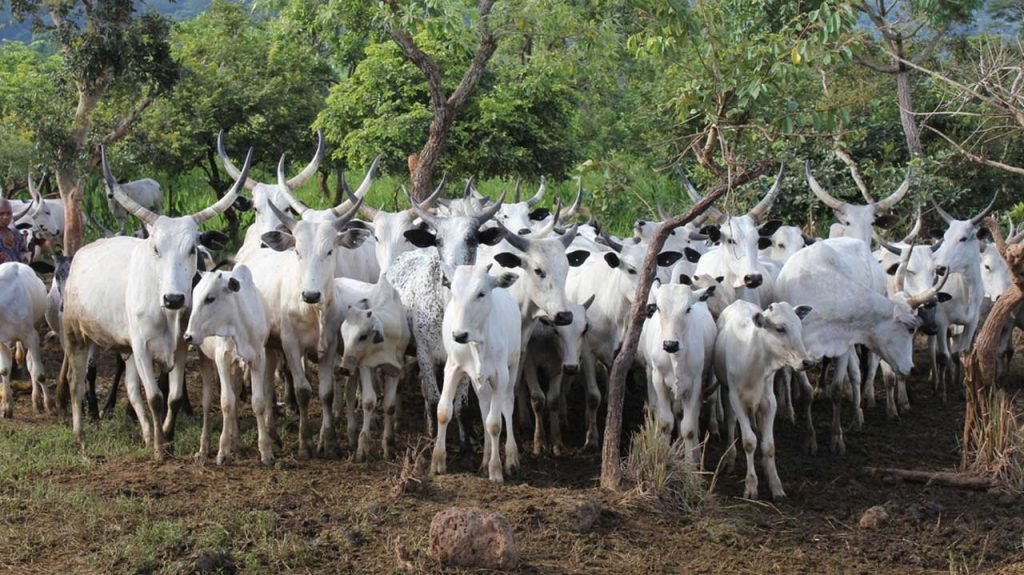The Federal Capital Territory Administration’s (FCTA) Agricultural and Rural Development Secretariat launched a four-week mass vaccination of cattle to combat the spread of Anthrax in the FCT on Monday.
The programme was launched in Paikon Kore Grazing Reserve, Gwagwalada Area Council, Abuja, by the acting Secretary of the Secretariat, Alhaji Ishaq Sadeeq.
According to him, the mass vaccination campaign would target at least one million livestock across the FCT’s six Area Councils.
Sadeeq added that the action became essential when the sickness was confirmed in Suleja, Niger, one of the federal capital’s adjacent states.
He congratulated Mr. Olusade Adesola, FCTA’s Permanent Secretary, for sanctioning the acquisition of one million doses of the vaccine, which scientists have recognized as the most effective method of avoiding the illness.
He stated that the vaccination campaign, which would last four weeks, would be carried out concurrently across the 62 wards of the FCT’s six Area Councils.
He said that the activity was part of the FCT Administration’s proactive approach to illness control.
“Since the announcement of the outbreak in Ghana earlier this year, the FCT Administration has conducted a series of outreach campaigns to educate residents, particularly livestock owners and butchers, about Anthrax disease.”
“The goal of the sensitization was to provide them with knowledge of the signs and symptoms as well as effective measures they can take to protect themselves and their animals from contracting and spreading the disease,” he explained.
He urged cattle owners to engage with veterinary health officials to ensure the success of the activity.
He further recommended livestock owners not to sell or butcher any animal showing evident signs of the disease and to report any suspected instances to any of the FCT Veterinary Clinics.
“While our veterinary personnel have been put on alert to attend to any emergency cases, we will be working closely with the Health and Human Services Secretariat to attend to human cases involving livestock owners,” he said.
Dr. Regina Adulugba, Director of Veterinary Services, FCT, defined anthrax as a “fatal disease” to both animals and people that may be transmitted by open wounds, airborne transmission, or eating contaminated animals.
“The best protection against the disease is vaccinating the animals, and that is what we are here to do,” Adulugba added.
“It’s lethal because it’s zoonotic.” Zoonotic means that it can affect both humans and animals. As a result, it is harmful, and it spreads through a variety of channels.
“If you have a wound on your skin, it can affect the wound and infect the person, or it can spread through the air, or it can spread through meat consumption.”
“As a result, we advised them not to slaughter any sick animals for the time being.” If an animal becomes ill, it should be allowed to die before being tested to discover if it is positive.
“It’s safer for them as cattle owners, their children, and their families because it can affect humans and is just as lethal in humans as it is in animals.”
Yahaya Isa, Chairman of the Miyatti Allah Cattle Breeders Association of Nigeria (MACBAN), FCT Chapter, praised the FCTA for taking the initiative.
Isa, who is also the association’s Deputy National Secretary, stated that the action would not only safeguard cattle from the disease but would also save investment and human lives.
He praised the FCTA for being the first in the country to take such a proactive move to prevent the disease from spreading further.
“The entire Fulani herders’ community is pleased and fully prepared to comply with the agreement.”
“Our people are ready to work with officials from all over the world.” “We’ve even mobilized a group of youths in each area council to support them wherever they go,” he added.











